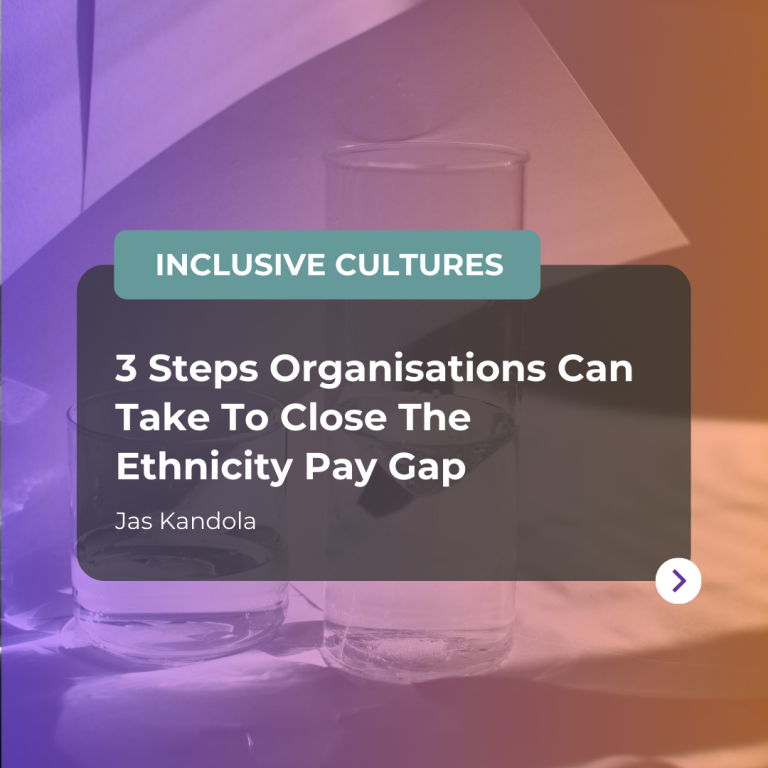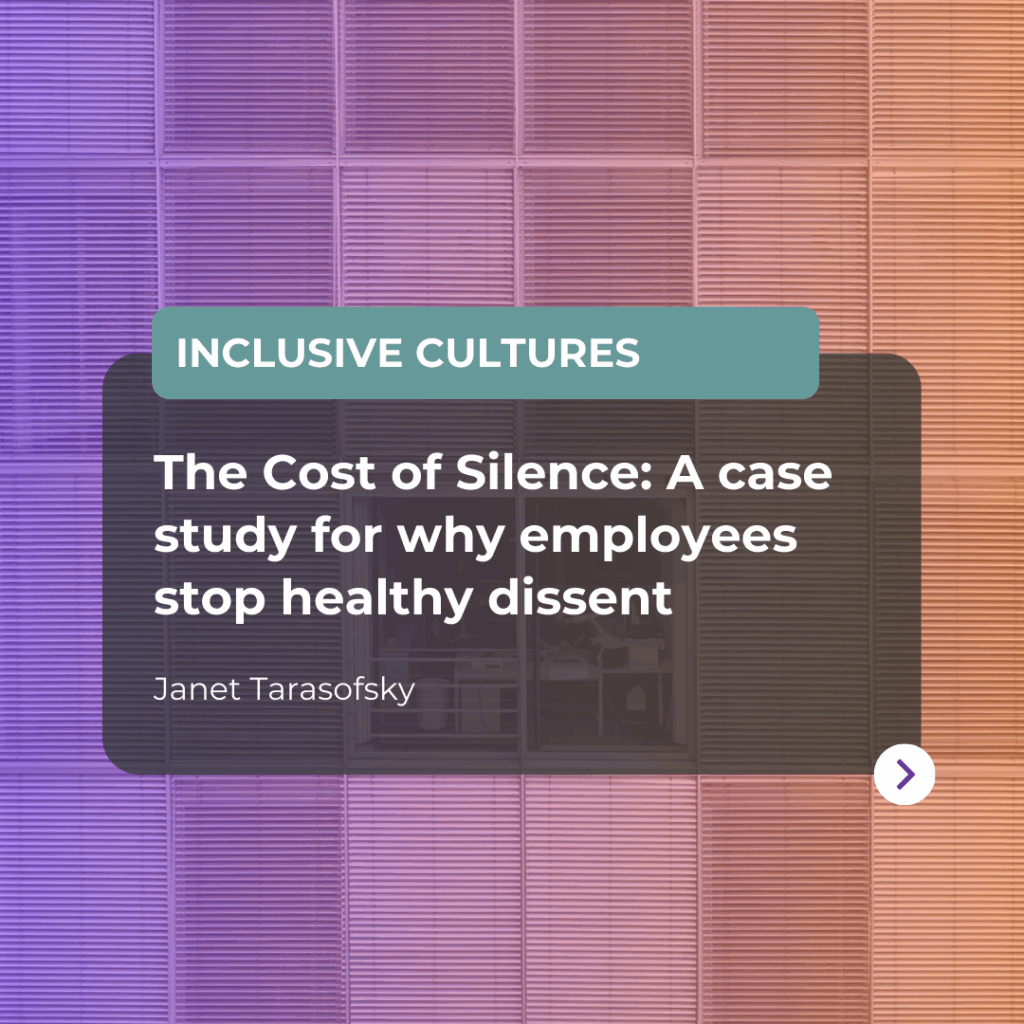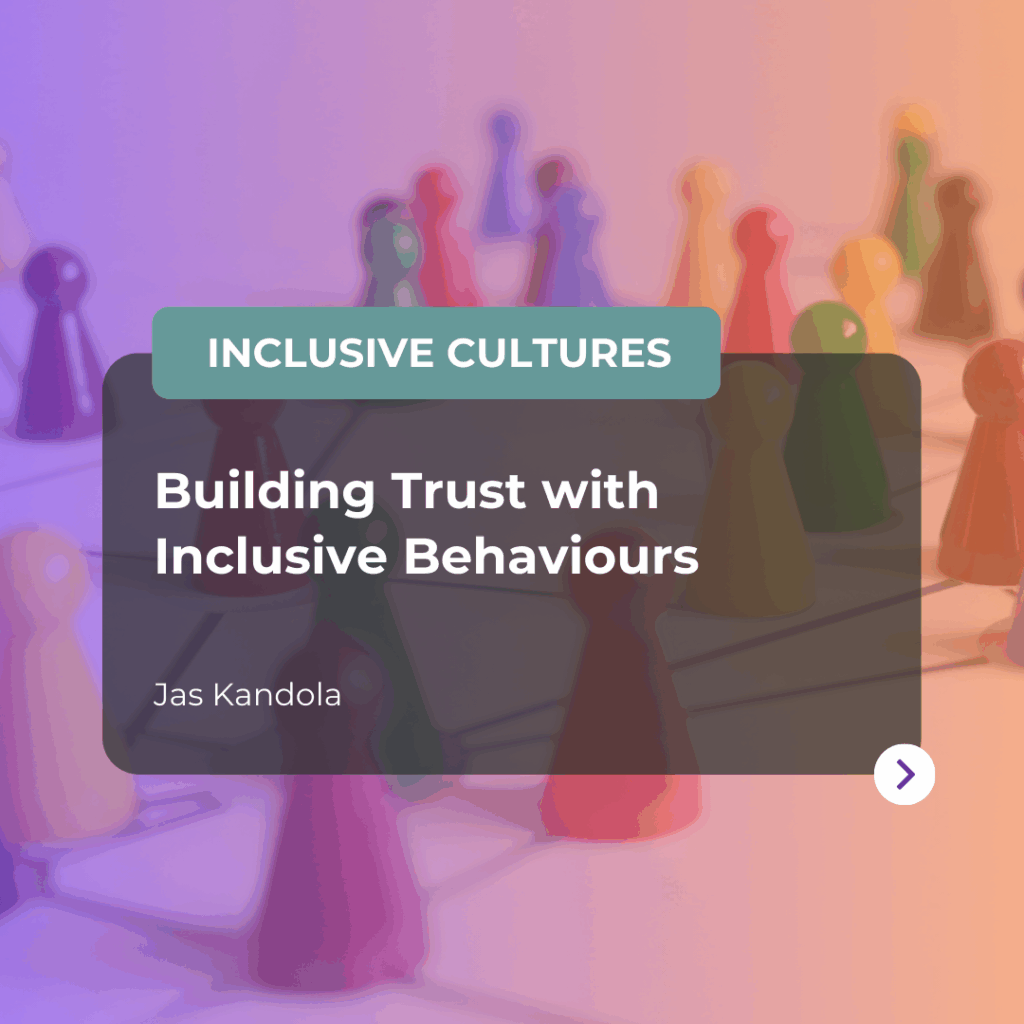January 8th marks Ethnicity Pay Gap Day, which was founded by Dianne Greyson and aims to raise awareness of the issues relating to the Ethnicity Pay Gap and encourage the government to make Ethnicity Pay Gap reporting mandatory.
Where there are differing sources of data surrounding the Ethnicity Pay Gap, it can be difficult to accurately say what the overall Ethnicity Pay Gap is, when compared for example to the Gender Pay Gap, given the large regional and group variations, as well as the variations and limitations in data collection.
In this article, we will discuss the ethnicity pay gap, the latest on mandatory reporting and provide suggestions for organisations looking to tackle the ethnicity pay gap.
What is the ethnicity pay gap?
The ethnicity pay gap in the UK is, put simply, the difference between the average pay of White British employees compared with employees from other groups.
However, in reality, it is difficult to look at the ethnicity pay gap as one single figure, say in the way we tend to look at the gender pay gap, i.e. the difference between what men and women are paid on average.
Looking at the ethnicity pay gap as a whole can be somewhat misleading, especially when looking at different sources of data. For example, as of October 2020 the Office for National Statistics (ONS) cited the figure as 2.1% overall, whereas the Bank of England cited the figure as closer to 4% overall.
When those figures were published, it was clear that there were much larger differences when the data was looked at in more detail. For example, there were huge variations by region, by ethnic group and when looking at different sources of data.
We’ll touch on the most recent figures published by the ONS later in this article.
Is ethnicity pay gap reporting mandatory?
In short, it is not, unlike Gender Pay Gap reporting.
The government entered into a consultation on mandatory ethnicity pay gap reporting back in 2018, and while the response was due in late 2019, it did not arrive until the middle of last year.
In July 2023, the government published their response to the consultation, and they confirmed that EPG reporting would not be mandatory:
“Therefore, as set out in the “Inclusive Britain” report, which was published in March 2022, the government will not be legislating to make ethnicity pay reporting mandatory at this stage. Instead, we have produced guidance to support employers who wish to report voluntarily. This was published in April 2023.” – Ethnicity Pay Gap Reporting Government Response July 2023
You can find their reasoning for not making ethnicity pay gap reporting mandatory in the full response here.
Can we tackle the ethnicity pay gap without mandatory reporting?
Organisations can absolutely still report their ethnicity pay gaps should they wish and can review the government guidance on doing so.
However, reporting alone is not enough to tackle the problem, though it helps to identify and raise awareness of the problem in the first place.
For example, following the first mandatory Gender Pay Gap report, there was little (0.01%) to no (0%) progress in some areas, with one area measured actually worsening between 2018 and 2019.
Therefore, organisations need to focus on promoting diversity, equity and inclusion across their processes and procedures to help stop pay gaps from occurring.
What is the latest ethnicity pay gap data?
In November 2023, using data from the 2021 Census, the Office for National Statistics published a report on Ethnicity Pay Gaps in the UK from 2012 – 2022.
As we touched upon earlier, rather than focusing on one distinct ‘Ethnicity Pay Gap’ figure, the report outlines in detail the differences between different ethnic groups, and takes into consideration other factors such as:
- Gender
- Country of birth
- Raw and adjusted data
It’s clear to see why looking at an ‘overall’ figure for this period could be misleading. For example, over the 10-years analysed, 8 ethnicities were shown to have earned less than a White British employee on average, with 8 ethnicities earning more than a White British employee on average. So, when combined into one figure the gap would look much smaller than it actually is in certain groups.
Looking only at an overall figure would hide, for example, the data which shows that those in the group ‘Mixed of multiple ethnic groups: White and Black Caribbean’ earned on average 18.5% less than their White British counterparts between 2012 and 2021*.
(*Please note that these figures were only available across England and Wales)
To look at all 18 categories, as well as the differences by gender, place of birth, and other variables, you can view the report in full on the ONS website.
Why do we have an ethnicity pay gap?
There are several reasons that we have an ethnicity pay gap, and some of these overlap with the gender pay gap.
Indeed, as mentioned in one of our previous webinars on the subject, we found that the data indicates that the ethnicity pay gap must be addressed for the gender pay gap to be addressed.
Two key issues worth highlighting for organisations are cumulative bias and the informal bar.
Cumulative Bias
Bias is human, and as such – left unchecked – will be embedded throughout organisations, in its people, processes and decision-making.
This has a cumulative impact on individuals from an ethnic minority background at differing stages of their career, such as:
Searching for work
Ethnic minority job-seekers for example must put in 60% more applications to get an equivalent response rate from their white counterparts. They are having to work harder for the same result, putting in 60% more effort even at the recruitment stage for the same result.
Security of work
Employees from ethnic minority backgrounds are also significantly more likely to be in insecure work. For example, younger black workers in the UK are 47% more likely to be in zero-hours contracts than their white counterparts, and are more likely to have second jobs.
Experience in the workplace
Pearn Kandola’s Racism at Work research also helped to shine a light on experiences of racism in the UK workplace. For example, 59% of employees from an ethnic minority background said that colleagues would make assumptions about their character and behaviours based on the colour of their skin, with 46% stating they were treated differently as a result, based on colleagues’ assumptions on their ability.
Opportunities in the workplace
We know that ethnic minority employees are less likely to be steered towards development opportunities in organisations, with white employees on average having 3x more mentors and 3x more access to confidential information.
The Informal Bar
The informal bar is where a different level of requirement is put in place for employees from an ethnic minority, as well as women, who must prove themselves more than their white (or male) counterparts before decision-makers agree that they have talent and are worthy of promotion.
This informal bar exists within the internal appraisal process, and through our live bias reviews with clients, we’ve found this often becomes apparent in appraisals, moderation meetings and promotion panel discussions.
Here are some verbatim examples from a discussion that we attended at an organisation to conduct a live bias review.
- “She is highly focused on performance but doesn’t show the same ability around empathy”. This example was shown to be playing into stereotypes.
- “His preference is not to lead; his preference is to follow…he’s still learning so I wouldn’t expect him to lead the agenda.” In this example, we questioned why the candidate was marked down for not leading on this occasion if he was not expected to.
- “[Name] in the past year has developed into a beautiful butterfly”. It was noted that there is simply no room for comments like this when assessing an employee’s capability.
So while it happens in a subtle way, these results are a perfect illustration of the ‘informal bar’ existing and how it operates within business decision-making.
What lessons can we learn from the gender pay gap to help tackle the ethnicity pay gap?
- Getting the solution right
When we look at tackling the ethnicity pay gap, we cannot just look at what other organisations are doing, or focus on what might be likely to work, organisations need to understand what the issue or issues are specifically within their organisation and tackle them head-on.
- Identify and tackle bias at every point
It’s not enough to focus on one area, such as graduate intake, or mentorship, organisations need to look at every touch-point for employees or potential employees across recruitment, culture and development.
- Even application of criteria, evidence and scrutiny
Organisations must evenly apply criteria, evidence and scrutiny if they are to address the informal bar and make sure that ethnic minority employees are fairly progressing into more senior roles.
What can organisations do to address the ethnicity pay gap?
- Process reviews to identify adverse impact
Reviewing your internal performance management processes and paperwork is vital to uncover anything that could be having an adverse impact on the fair assessment and development of ethnic minority employees.
- Live bias reviews
As previously mentioned, conducting live bias reviews is also a unique and impactful way to catch bias in action and see how it might be impacting employees from ethnic minority backgrounds in your organisation.
- Meaningful positive action
Meaningful positive action is about taking steps to create a more equitable workplace and address the unfair disadvantages that employees may have in your organisation.
It’s clear that there is much that can and should be done to address the ethnicity pay gap in the UK.
Without mandatory reporting, while it may be difficult for organisations to accurately benchmark against UK businesses as a whole, it shouldn’t prevent organisations from taking a step to address the unexplained ethnicity pay gaps that we know continue to exist.
Need help addressing the ethnicity pay gap?
If you’re looking to review your policies and processes to mitigate any adverse impact and ensure fairness, or are looking for support through a Live Bias Review or positive action programme then please get in touch with our experienced business psychologists today, email info@pearnkandola.com.






